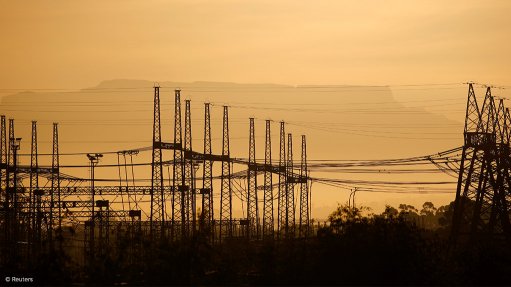
Photo by: Reuters
Eskom is promising to keep the lights on this winter, it said in a statement issued on Friday afternoon.
It undertook to do this despite severe weather conditions that have already started to grip the country.
"Eskom is aware that the past few weeks not only signalled the start of winter, but also indicated the impact the weather conditions will have on the company’s electricity distribution networks," the statement said.
"The Eskom Distribution Customer Centric Winter Plan has already been activated so that its networks are able to cope with the extreme weather conditions, increased electricity demand as well as respond to and restore network faults timeously."
According to Eskom group executive for distribution Mongezi Ntsokolo, during this winter, temperatures will continue to drop and Eskom calls on all customers to continue to use electricity sparingly.
"Customers also need to be vigilant of the risks of illegal electricity connections and we urge public support in reporting illegal activities like cable and electricity theft,” said Ntsokolo.
The winter plan includes:
- Preventing and implementing measures that will assist in avoiding possible equipment failures and incidents;
- The management of the network delivery failures for the national and provincial networks in winter;
- The implementation of emergency preparedness plans to manage power system interruptions that might materialise;
- The increased capacity of Eskom's customer contact centre.
At the same time, a winter looms, business and industrial electricity users are bracing for winter price hikes coming into effect from June.
The anticipated implementation of Eskom’s winter rates will see consumers paying more per kilowatt-hour for electricity usage between June and August, according to energy specialist Heather McEwan of sustainability company Rhino Group.
In addition, the annual municipal electricity tariff increases would also come into effect in July, she said.
“Electricity bills will rise even further in July, when the annual increase kicks in on top of the winter prices. So, after August, when the winter rates fall away, consumers will still be paying more for electricity due to the annual escalation,” said McEwan.
In February, the National Energy Regulator of South Africa (Nersa) approved a maximum 2.2% electricity tariff increase by Eskom for the 2017/18 period, and recently capped municipal electricity tariff increases at 1.88%.
“Eskom could also still contest the Nersa ruling, which acts as a handbrake on spiralling energy costs. Even so, it has allowed an average annual price increase of 18.1% since 2008, and costs will continue to rise in the future,” said McEwan.
"Thanks to rising electricity prices, the sustainable solutions had a faster return-on-investment. Energy, like labour, is now becoming a huge cost for businesses, which will impact on their bottom line. It’s essential to become pro-active and have a long-term strategy in place to deal with it.”